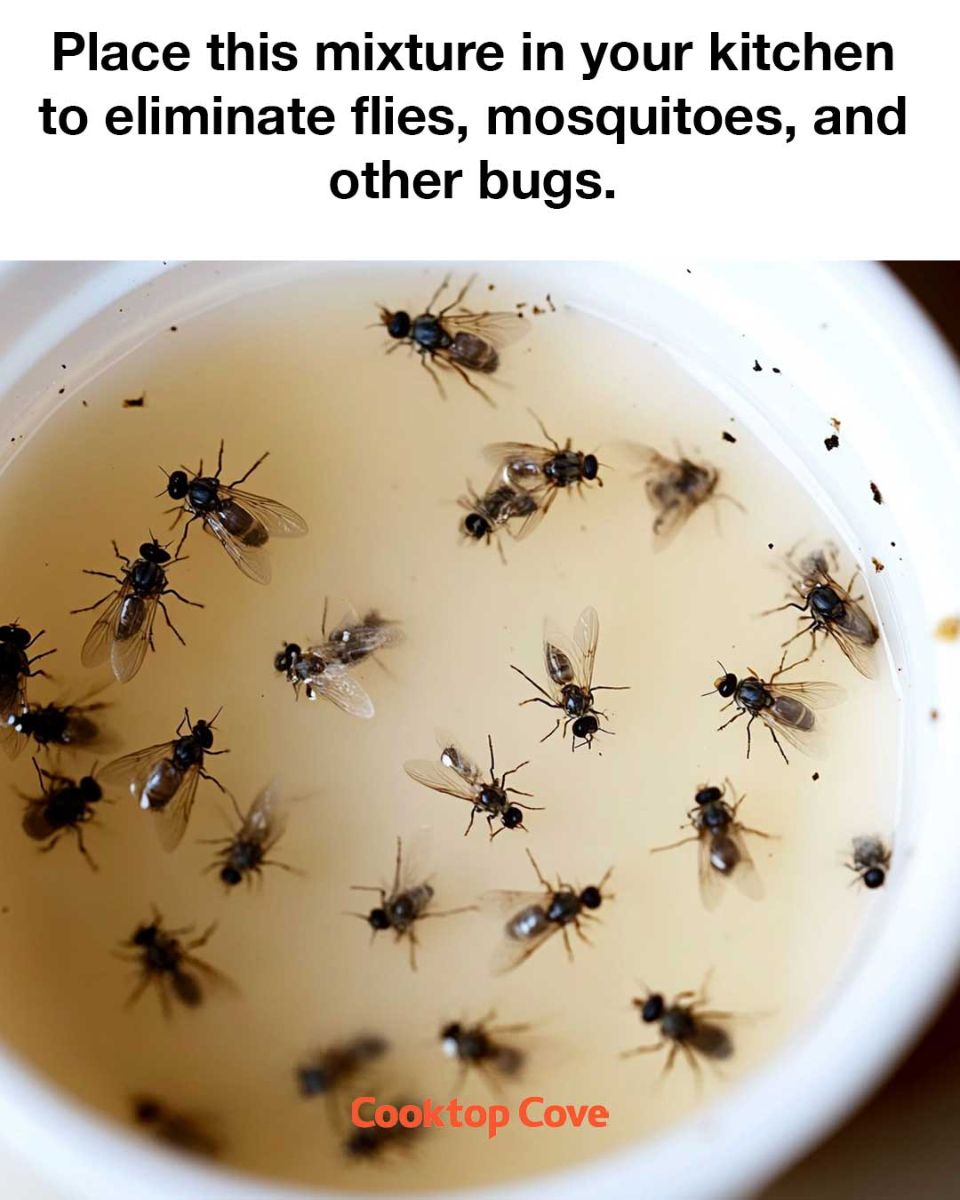The kitchen is often considered the heart of the home, where delicious meals are prepared and families gather to share stories and laughter. However, it can also become a hotspot for unwanted guests like flies, mosquitoes, and other pesky bugs. These insects not only cause annoyance but can also pose health risks by contaminating food and spreading diseases.
While there are numerous chemical solutions available in the market to combat these pests, many homeowners are turning to natural alternatives. Natural repellents are not only safer for humans and pets but also environmentally friendly. In this article, we will explore an effective homemade mixture that can help keep your kitchen bug-free using simple ingredients you likely already have at home.
1. The Problem with Bugs in the Kitchen
Bugs in the kitchen are more than just a nuisance; they can lead to serious health concerns. Flies, for instance, are known to carry over 100 pathogens, including bacteria like E. coli and Salmonella. These pathogens can be transferred to food and surfaces, increasing the risk of foodborne illnesses. Mosquitoes, on the other hand, are vectors for diseases such as West Nile Virus and Zika Virus.
The warm and moist environment of a kitchen, combined with the presence of food, makes it an ideal breeding ground for these insects. Even a small number of bugs can quickly multiply, leading to an infestation. This makes it crucial to address the problem promptly and effectively.
2. Why Choose Natural Repellents?
Natural repellents offer a safer alternative to chemical insecticides, which can contain harmful toxins that pose risks to both human health and the environment. For instance, DEET, a common ingredient in many bug sprays, has been linked to skin irritation and other health issues with prolonged exposure.
By opting for natural solutions, you can reduce the risk of adverse health effects while still effectively managing insect problems. Natural ingredients are biodegradable and less likely to contribute to environmental pollution, making them a more sustainable choice.
3. The Power of Vinegar: A Natural Bug Deterrent
Vinegar, particularly apple cider vinegar, is a well-known natural bug deterrent. Its strong odor is unpleasant to many insects, effectively keeping them at bay. The acetic acid in vinegar can also kill certain types of bugs on contact.
To use vinegar as a repellent, you can simply place a bowl of apple cider vinegar in your kitchen. The smell will deter flies and mosquitoes, while the liquid can trap and drown those that come too close. For enhanced effectiveness, consider combining vinegar with other natural ingredients.
4. Olive Oil: More Than Just a Cooking Ingredient
Olive oil is not only a staple in cooking but also a useful component in natural bug repellents. Its thick consistency can trap insects, preventing them from escaping once they come into contact with it.
When mixed with vinegar, olive oil can create a barrier that bugs find difficult to cross. This makes it an excellent addition to any homemade bug repellent mixture, enhancing its effectiveness without introducing harmful chemicals.
5. Shampoo: The Surprising Bug Trap Component
Shampoo, particularly those with strong fragrances, can be an unexpected yet effective component in a bug trap. The scent attracts insects, while the surfactants in shampoo can break the surface tension of water, causing bugs to sink and drown.
By adding a small amount of shampoo to your vinegar and olive oil mixture, you can increase its ability to trap and eliminate insects. This simple addition can significantly boost the overall effectiveness of your homemade repellent.
6. How to Make the Vinegar, Olive Oil, and Shampoo Mixture
To create this natural bug repellent, you will need the following ingredients: 1 cup of apple cider vinegar, 1/4 cup of olive oil, and 1 tablespoon of liquid shampoo.
Next Page

